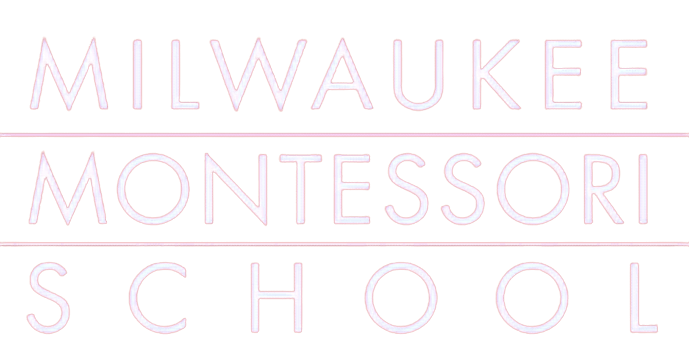Toddler Program
18 - 36 months
The first three years of a child’s life set the stage for later academic and social growth. Toddlers are like young scientists; eager to learn, try new things, and explore the world around them. That's why the Toddler Program at Milwaukee Montessori School is more than just childcare; we provide students ages 18 months to 3 years the perfect environment to establish good habits, absorb language skills, and become independent.
Toddlers’ Natural Curiosity Allows for Learning
In our many years of working with young children, we've found that they are exceptionally responsive to order, and we've built our toddler classrooms to reflect this, initiating good habits that continue into the home and beyond.
Because of their natural curiosity, toddlers are able to soak up language from their surroundings; learning big words and complex sentences with ease and joy, becoming happier as they learn to express their thoughts, resulting in less crying and tantrums.
We focus on teaching our toddlers how to be independent, and they are thrilled to discover how to take care of themselves! Our job is to guide them to self-discovery by developing their sense of self-efficacy.
Toilet Training
Our faculty provide an expert toilet training experience when the student shows signs of readiness and the family is ready to partner in this life-changing development.
Being toilet trained is a requirement for our Academic Program, which is one of the reasons we work so hard on this skill, as well as growing their independence and facilitating developmentally appropriate communication.
It’s More Than Childcare
Our Toddler Program offers your child trained and experienced teachers, many of whom have their bachelor's degrees. We hold our program in a beautiful, clean, and welcoming facility that is professionally cleaned each day, with large, well-kept outdoor space where they play every day of the week, along with music and gym time! Our heavy emphasis on independence skills is put in place because we are educators, not just childcare workers.
First Steps
Stepping Stones
When are Toddlers Ready for the Academic Program?
If your toddler has achieved these goals, they may be ready for Children's House!
Toilet Training
Toddlers who are ready to transition into the Academic Program exhibit successful toilet training for two full months without having any accidents. Specifically, they are able to:
- articulate a need to use the bathroom;
- not ask for, or need, adults to accompany them to the bathroom;
- manage their clothing requirements independently, such as taking down pants or tights before using the toilet;
- wipe themselves appropriately and thoroughly;
- flush the toilet without fear;
- wash their hands with soap and water after each time they use the toilet; and
- clean themselves and change their clothes independently if they become soiled.
Tasks of Independence
Toddlers who are ready to transition to the Academic Program are able to:
- consistently put on and take off their own coats, hats, shoes, boots, and mittens;
- put away their items and hang clothing in their own lockers and/or cubbies;
- change from indoor to outdoor shoes independently in less than five minutes;
- put on, confidently carry, and take off their own backpacks;
- independently pack their backpacks with items such as lunch boxes, and thermoses;
- open and close their backpacks and/or lunch boxes using zippers, snaps, and other closures;
- locate their belongings by sight and through labels with name;
- make transitions without crying or tantrums;
- feed themselves using a fork and spoon;
- drink out of a regular cup; and
- when applicable, scrape plates into the compost bin and place plates, cups, and utensils on the lunch cart.
Working Independently
Toddlers who are ready to transition to the Academic Program are able to:
- independently find a material to work on, work with it in a seat of their choice, and then put the material back in the right place when completed; and
- sit through a story and a ten-minute lesson without getting up.
Oral Receptive Skills
To move to the Academic Program, toddlers need to have age-appropriate oral receptive skills. Specifically, they will be able to:
- follow instructions and requests with the first ask, needing no additional prompting;
- follow two- and three-part instructions;
- respond when their name is called during roll call or when it is time for a lesson;
- follow cues from the environment, such as joining a line when they see others lining up; and
- stay in and walk in a line.
Oral Expressive Skills
Toddlers who are ready to transition into the Academic Program are able to:
- say their first and last names, their ages, and their parent’s names;
- communicate what they want in two or three sentences;
- hold a conversation using three or more sentences;
- speak so that others can understand them;
- communicate with other children and name several friends;
- name most familiar things as well as some plurals such as cars, dogs, and cats;
- understand and correctly use certain prepositions such as in, on, and under; and
- correctly use pronouns such as I, me, we, and you.
Toddler faculty keep track of and document these skills and behaviors for each toddler, and when a student is ready, they make a recommendation to our admissions team, who then contacts the parents to discuss a transition when there is availability in our Children's House classrooms.
We encourage parents to learn more about child development milestones at the
CDC website.
